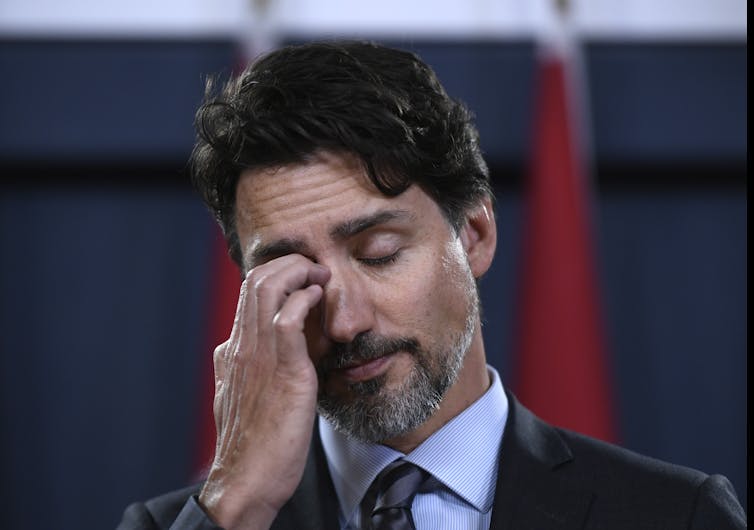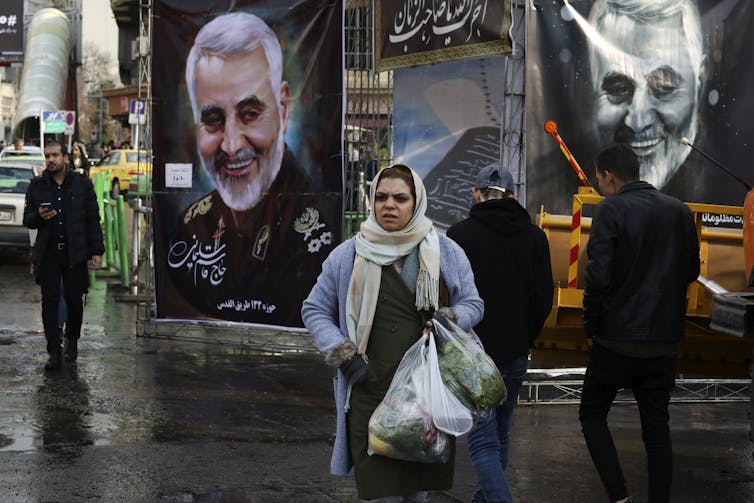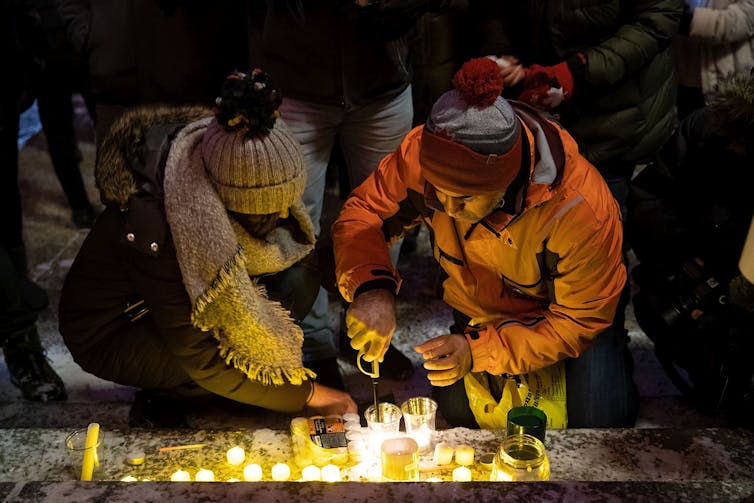
Jeremy Wildeman, University of Bath
Canada is caught in a mess of its own diplomatic making following the recent escalation in conflict between the United States and Iran. This escalation seemed to contribute to the downing by Iran on its own soil of Ukraine International Airlines Flight PS752, with 57 Canadians aboard.
This is not just a matter of Canada being caught in an international conflagration involving the Trump administration after its targeted killing of Iranian Maj.-Gen. Qassem Soleimani.
It is also the result of an unnecessarily aggressive posture of Canada’s own when, in 2012, Stephen Harper’s Conservative government closed its embassy in Tehran and expelled Iranian officials on short notice from Canada.
The context of war and Flight PS752
Flight PS752, with its stop in Kyiv, was popular with Iranians flying to Canada because there are no direct links between the two countries. It is also a cheap alternative route in Iran, which is impoverished by sanctions, conflict and corruption.
For months, the U.S. and Iran had been antagonizing one another across the Middle East. These regional rivals have been particularly aggressive since the U.S. withdrew in 2018 from the Joint Comprehensive Plan of Action (JCPOA) treaty, brokered by Barack Obama’s administration, and imposed new sanctions on Iran.
The JCPOA had been designed to prevent Iran from acquiring nuclear weapons. Iran had been upholding its part in the agreement.
This tension escalated to dramatic new heights when the U.S. carried out the unprecedented act of openly assassinating another country’s top official. A fate typically reserved for non-state players in the post 9/11 era, it was carried out at Baghdad’s international airport. Ten people died in the drone attack, including Iraqi factional commander Abu Mahdi al-Muhandis. This has effectively demolished existing international norms for conduct.

Hillary Mann Leverett, a former White House National Security official, told Al Jazeera the killing of Soleimani amounted to a “declaration of war.”
Iran retaliated
The killing led directly to Iran saying it would no longer honour the JCPOA and launching missile attacks on American military bases in Iraq three days later, with no casualties. It may not be surprising in such a tense environment if the Iranian military fired missiles at an airliner taking off from its own airport, fearing an imminent U.S. strike. Iran, however, should likely have grounded all flights that day, too.
Iran first denied it had shot down the plane, but after Iranian social media users ran rampant with speculation that Iranian missiles were responsible, the government admitted to its actions. Protesters have since taken to the streets against the regime.
Canada’s 2012 decision to cut diplomatic ties with Iran has played a role affecting the tragic loss of Canadian citizens.
It was a decision based heavily on internal political calculations. It has been at great cost to Canada’s ability to have a presence and institutional contacts in Iran to understand the politics and society there — and provide services to Canadians.
This lack of basic intelligence on the ground has hobbled Canada at the worst possible time. Because of these poor relations, Canada also has only limited access to participate in the investigation of the downed flight.
Trudeau primarily blamed Iran
Canada justified cutting ties in 2012 by saying Iran was the world’s “most significant threat to global peace and security.” Prime Minister Justin Trudeau seemed to toe that line in his Jan. 11 news conference, laying blame primarily on Iran.
Trudeau has largely been a adherent of his predecessor’s Middle East policy. However, diplomatic representation would significantly help in the aftermath of the downing of Flight PS752. What is more, countless Iranians are looking abroad for support for their own cause of reform and liberalization, and instead have been subjected to sanctions that harm innocent citizens most.
Diplomatic ties offer opportunities for dialogue essential to avoid conflict and resolve disputes. Further, Canadians live, travel and do business around the world, and a large community of Canadians of Iranian descent need access to Canadian diplomatic representation for their own safety and well-being.

That is why Canada has representation with other states around the world, even some of the most notorious. Indeed, one of Trudeau’s campaign promises in 2015 was to restore diplomatic relations with Iran.
Though the Harper government added legislation that made it difficult to reverse the 2012 decision, it can be done with political will.
Canadians need an embassy in Iran
No one yet knows what the fallout will be from the escalation between the U.S. and Iran. The Middle East is now even more unsafe and unstable. Iran will feel compelled to respond after so egregious an attack on its officials, to save face and show attacks on its leadership come with a cost.
Meanwhile, Iraq is in greater upheaval. And no one can determine yet what the global impact will be after the U.S. so dramatically smashed existing norms of statecraft.
More than ever, Canada needs a presence to be able to deal on its own with the aftermath of these terrible events, with Canadian interests front and centre. As the tragedy of Flight PS752 has made explicit, Canada only hurts itself and Canadians without it.
[Like what you’ve read? Want more? Sign up for The Conversation’s daily newsletter. ]![]()
Jeremy Wildeman, Visiting Research Fellow, University of Bath
This article is republished from The Conversation under a Creative Commons license. Read the original article.


